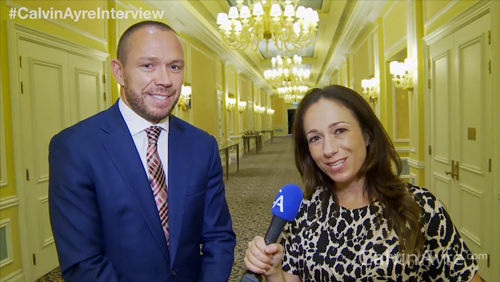Rebecca Liggero. interviewed Aaron Fischer of CLSA Limited, one of the Asia’s Leading brokerage and investment Firm and he talks about Chinese Tourism industry and a bit of Macau.
There is light at the end of the tunnel for Macau’s non-gaming side.
The city state is very interested in tapping more into the Chinese tourists market to help the grim situation in Macau. CLSA Limited analyst Aaron Fischer said the number of Chinese tourists is expected to double in number, from 98 million in 2013 to 200 million in 2020.
Lawrence Ho, CEO of casino operator Melco Crown Entertainment, previously said non-gaming “will never make any money,” and will definitely not save the day for Macau.
Fischer, however, saw things differently.
“I think the challenge of Macau has is to try and improve their tourism infrastructure, which includes the number of hotel rooms, but also the connectivity between the mainland [China] and Macau, which requires improvements in terms of the border crossings and also the ability to get from the various provinces in China into Macau, so we need to see a big step-up in investment,” Fischer told CalvinAyre.com.
On the infrastructure side, a bridge that connects Hong Kong, Macau and Zhuhai—three major cities in China’s Pearl River Delta—is already being constructed. On the entertainment side, however, the city state still needs a bit of work.
“A little back over the last 10 years, I think Macau’s been underwhelming in terms of the level of non-gaming entertainment,” Fischer said. “But in the next few years, we are seeing these companies invest billions on the non-gaming side, so we believe the number of non-gaming attractions is gonna increase for about five up to about 35 or 40 within a short period of time. So I think the future is bright on the non-gaming side of Macau.”
So far, there’s the Venetian and Cotai Arena by Sands China, while Melco Crown has the House of Dancing Water.
Meanwhile, Fischer has some advice for tourism companies that are planning to attract the “experimental” Chinese visitors.
“Keep in mind that Chinese customers are very demanding and we would say, more experimental, or in a negative way, less loyal than consumers from other markets whether it’s Japan or other parts of Asia of Europe or U.S., so they change their product selection very regularly,” he noted. “So when it comes to trying to target the Chinese tourists, you need to really understand the customer and keep investing in your business because Chinese customers get bored very quickly and will move on to other destinations.”






